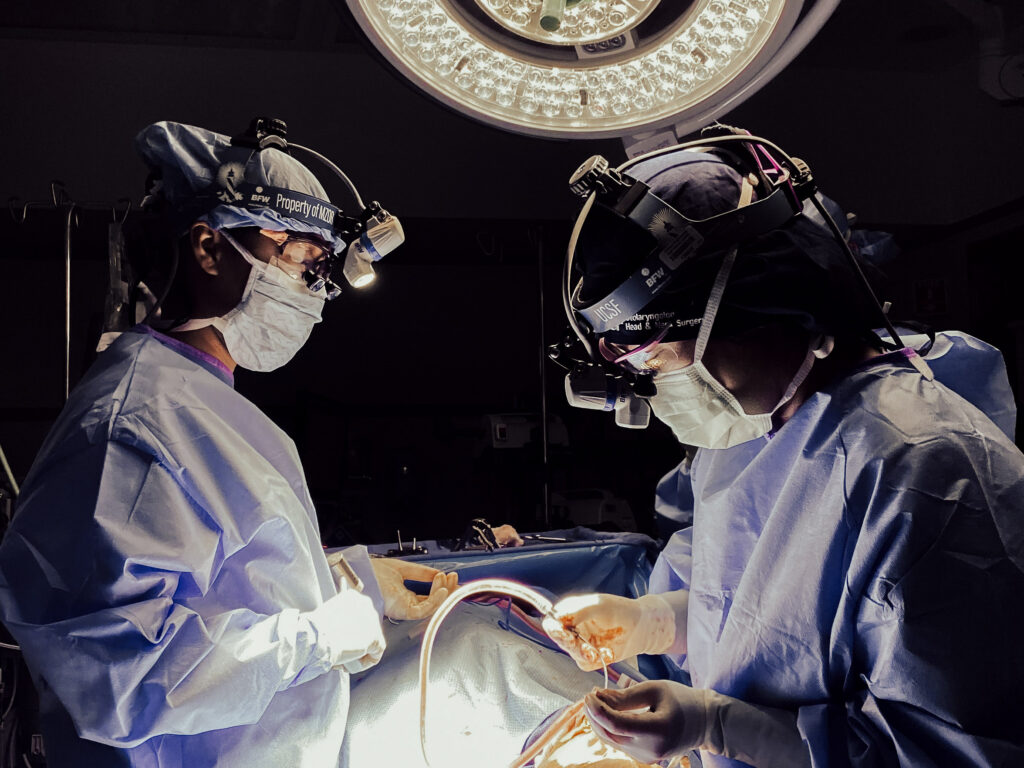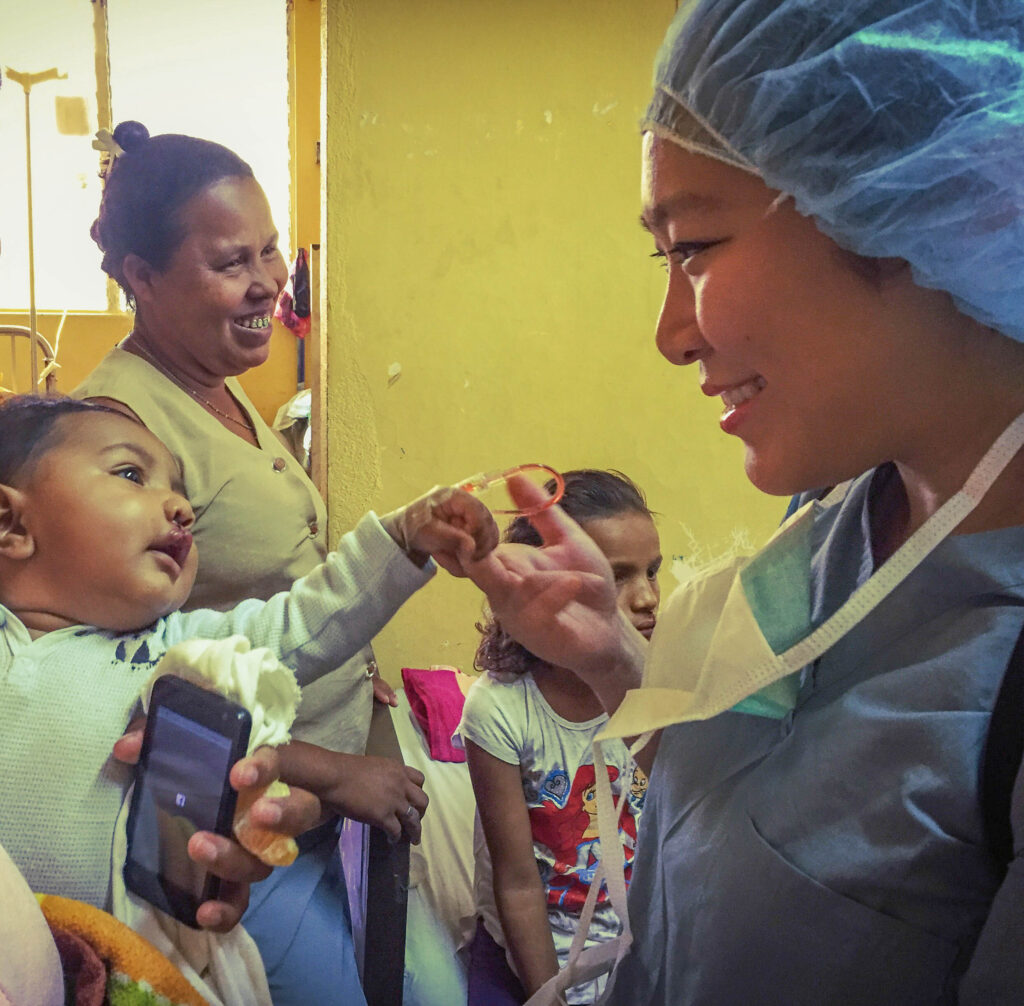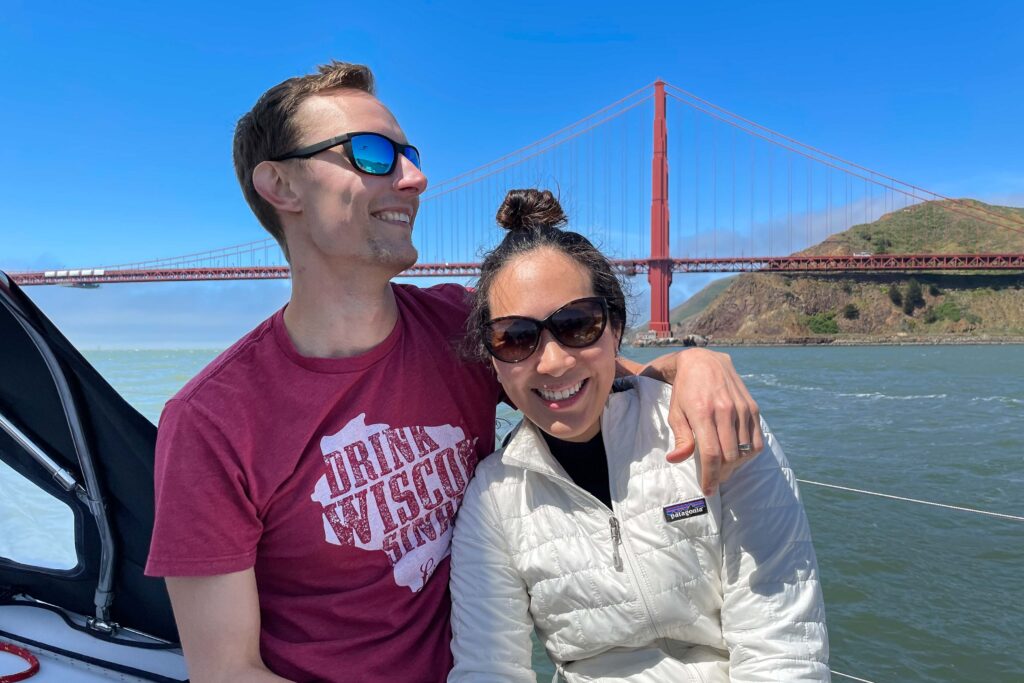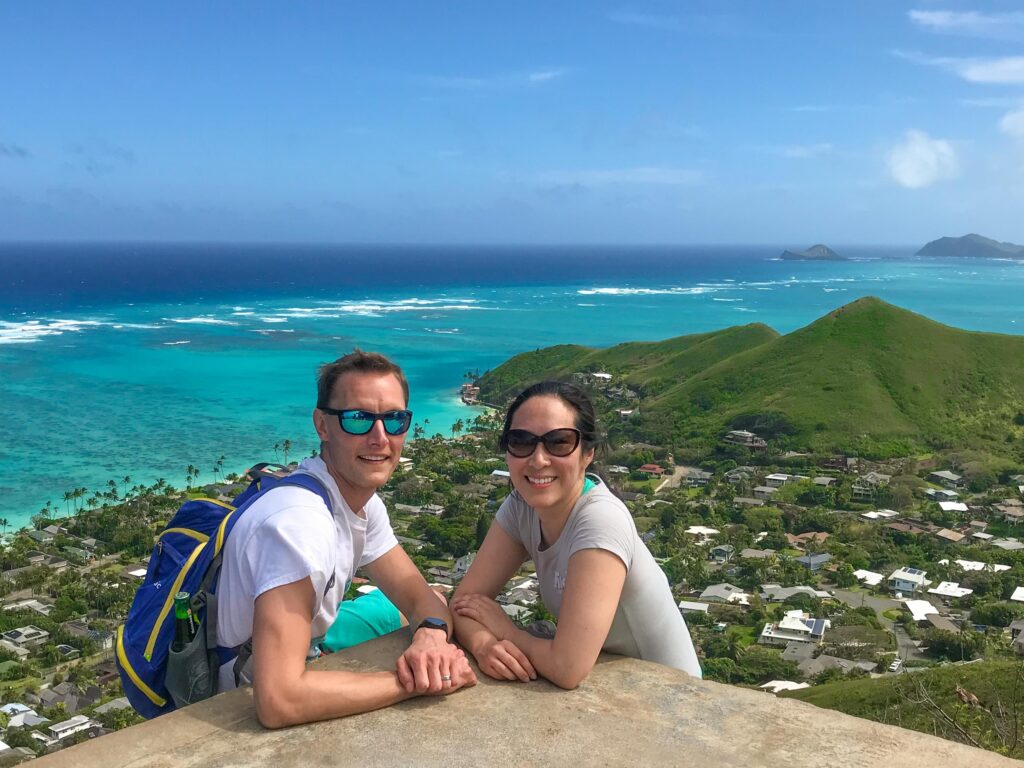Andrea Park, MD, earned her medical degree at the University of Iowa Carver College of Medicine. She completed a residency in otolaryngology at Washington University School of Medicine in St. Louis that included a T32 research fellowship. She then pursued a fellowship in facial plastic and reconstructive surgery at the David Geffen School of Medicine at University of California, Los Angeles, and now serves as assistant professor of facial plastic and reconstructive surgery at University of California, San Francisco.
What is your fondest memory of residency at Washington University?

When I think back on my residency experience, what has stayed with me most were the people that I worked with. In particular, I loved the two years I spent working with Dr. Paniello in the lab performing both clinical and translational research and the team breakfasts we would have during my ward and head and neck rotations.
There were so many experiences that have made an indelible impression and helped to shape the clinician and educator I am today – the first time Dr. Branham allowed me to open a nose on my own; when Dr. Chi had me lead a junior resident through an open reduction/internal fixation of a mandible; and, when he walked me through suturing an artery are just a few examples. In addition to the amazing faculty at WashU, I also am thankful for the staff that made my training experience memorable, including Dorina Kallogjeri, Sara Kukuljan, Maria Harrington, and the nurses at 6200 (I still dream about the midnight Jimmy Johns platter parties, especially since there is a dearth of JJs here in San Francisco).

How did training at WashU affect your career?
I will always be thankful for the opportunities and blessed by the training I received at WashU. The volume and breadth of clinical and operative experiences as well as the autonomy and research support are unparalleled. As a T32 resident, I received two CORE grants in the same year under the guidance of Dr. Paniello and the T32 training program. I also had the opportunity to participate in the CORE grant review – something that I have continued to participate in still.
From the moment you graduate from WashU, you can be assured that you have a broad foundation of knowledge and skills to hit the ground running as a fellow or practicing physician.
What attracted you to facial plastic and reconstructive surgery?
I came into residency with an open mind, and really considered every specialty. Ultimately, I loved the patients as well as the variety of in-office and surgical procedures that facial plastics had to offer. I remember sitting down with Dr. Branham early in my 4th year, and I remember him telling me that he really loved, to this day, both the reconstructive and aesthetic aspects of the field, which is exactly how I felt.
I had considered head and neck, but was more drawn to the microvascular reconstructive aspects. I also liked rhinology, but discovered I would really miss the soft tissue work. As a facial plastic and reconstructive surgeon, I’m able to incorporate all of these aspects and more into my day-to-day practice. The sheer depth and breadth of this field is really astonishing, and it is really a blessing to see the difference you are making, sometimes even before a patient leaves your clinic!

Is there a portion of your current practice that you find particularly rewarding?
Honestly, I’d say that nearly everything is rewarding at this point! I wanted to pursue an academic career because I really loved teaching and exploring unanswered questions. Currently, I am able to contribute to training the next generation of leaders in our field by teaching medical students, residents and fellows at UCSF. And, as the only female microvascular reconstructive surgeon at my institution, I find it rewarding to be able to interact with and help cultivate these skills and passions in other female trainees.
My day-to-day clinical practice as well as my scholarly pursuits are equally rewarding. As clinicians, we are truly life-long learners. After fellowship, I learned to perform gender affirming surgery, and the impact we have on our transgender patients’ lives is immense. As a fellow, I had the opportunity to join a medical mission trip to Nicaragua and perform cleft lip and palate surgery – it was an incredible experience and I would love to be able to continue giving back to both the local and the global health communities!
Any advice for residents considering facial plastic surgery?
Follow your passions and be true to yourself. Facial plastic and reconstructive surgery is a wonderfully diverse field, and one in which you could spend a lifetime mastering the nuances. You can choose to focus on the reconstructive aspects or the aesthetic aspects, or both. There is also a great opportunity to use your advanced skills in the global health arena.

How do you enjoy your spare time?
My spare time is spent traveling as well as spending time with family and friends. My husband Greg and I just returned from a honeymoon/babymoon (due in September) in Italy, and I already miss the pasta, gelatos, and all the history! We also like to spend our time hiking and occasionally sailing on the bay with my partners. We also spend time investing in our local community, and through our church, we are supporting several outreach programs to help those in need.
